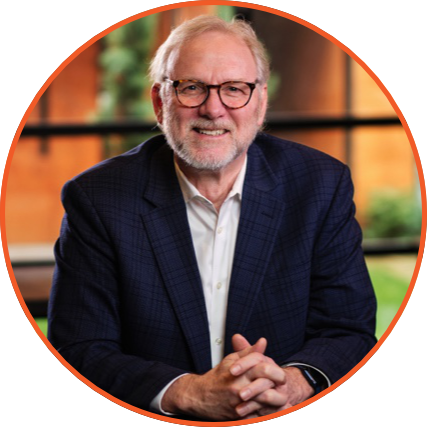I live a public life. You probably do too. My work consists of meeting after meeting where I’m called on to coach and counsel, speak and facilitate, discuss and collaborate. Sometimes in person, sometimes online, many in multiple time zones.
More often than not, these meetings take place back to back in rapid succession, most every day of the week. Sound familiar?
It’s an exciting life, to be sure, but it has an inherent danger. It’s the same danger California and Florida face. As municipalities in these states grow rapidly, groundwater below the surface of the earth dries up and structures above the surface of the earth collapse into the gapping chasms the absent groundwater create.
Geologists refer to this as a sinkhole. Google that term and you’ll see the most amazingly footage of this scary suburban phenomenon.
Sinkholes happen to us as well when we have an active public life and give no attention to the interior condition of our body and soul. We run dry of energy and vitality, and our world collapses in on us.
I’ve been on the cusp of having this occur, and, like a migraine headache, it’s not a fun feeling. That sinkhole feeling, however, is entirely preventable. Here are three private practices I follow to keep my inner springs fresh and flowing.
Private Practice One: Silence and Solitude
These two words are rarely referred to in our technological age, let alone practiced. But silence and solitude are critical for those of us who live a public life.
Constant interaction with people and the endless flow of information that characterizes business today leaves us parched, as surely as a hot desert sun. Breaks must be taken from both—interaction and information—to prevent a sinkhole from swallowing us alive.
Most every morning I begin my day with a protected block of time of silence and solitude, anywhere from 30 minutes to an hour. My faith tradition refers to this as having a daily quiet time, a great term given the noise that most of us experience in our days. Reading the Bible, reflecting on God in prayer, and writing in my journal gets my head in the right frame of mind before I jump into work.
I do this before news, before social media, and even before email. “Once you start looking at email, the whole day cascades into email responses and replying back and forth,” writes Laura Vanderkam in What the Most Successful People Do Before Breakfast. What do the most successful people do before breakfast? They begin the day in silence and solitude, irrespective of their faith tradition.
Additionally, once a month or so I go on personal retreat, an extended quiet time. On this retreat I’m completely disconnected from the outside world and spend my time, again, reading, reflecting, and writing in my journal. Some of the best ideas I’ve ever had in my personal and professional life have emerged on these retreats.
For the record, this does not come easily to me. I’m a raging extrovert—the furthest thing from a monk and a monastery you could imagine. I’ve just found with the external demands of my professional life, I need to give attention to the internal demands of my personal life. Silence and solitude do this for me.
Private Practice Two: Exercise and Sleep
Much has been written about the miraculous effects of exercise and sleep, so I won’t belabor these points here.
Except …
Except to mention that ten years ago I got serious about the physical condition I was in and seriously pursued getting in shape. I’ve ran, hiked, or cycled thousands of miles in the last decade, shed 50 pounds, and experienced a complete physical transformation.
Now I have a resting heart rate of 51 beats per minute, super low blood pressure, and sleep a solid, uninterrupted eight hours a night. That last development is the most amazing, because for years I used to toss and turn at night, desperately trying to fall asleep bleary-eyed in front of a television on the couch. Those days, I’m happy to say, are long gone.
Intense exercise melts away all the stress of my public life (my current routine is every other day sessions at Orangetheory Fitness. Love it!). When I work out, the after effects extend even to the next day, magically inducing sleep.
Silence and solitude. Exercise and sleep. And …
Private Practice Three: Cooking, Woodworking, or Whatever
I used to boast about the fact that I didn’t have any hobbies. “Work and family, that’s all I do,” I’d tell people. And that’s fine, I guess. At least family made it on the list, right? But I’ve come to see how short-sighted I was.
When our kids left the house to go to college, my wife and I made a deal. She was tired of making the millions of meals she’d made three times a day for three crazy kids, so we decided: I would do the cooking and she would do the cleaning up.
I jumped in, tentatively at first, having not spent much time in the kitchen. But then I started having fun, making more complex meals and experimenting with with different flavor profiles. Then, of course, there’s the gadgets. Cooking is made for guys just because of all of the cool gadgets you can buy!
Soon I began to really look forward to cooking dinner because it would turn off my brain at the end of the day. Unlike working with people, I could complete a project in full from start to finish. Cooking became invigorating, refreshing, and rewarding. A perfect break from business.
Recently, I’ve taken up the hobby of woodworking and the same exact thing has taken place. This is a dynamic that Alexa Pang describes in his brilliant book Rest as “active rest,” explaining, “When we think of rest, we usually think of passive activities: taking a nap, lying on the couch, watching sports on television, or binge-watching a popular TV series. That’s one form of rest. But physical activity is more restful than we expect, and mental rest more active than we realize.”
Bottom line: Get a hobby! Pursue something that you’re passionate about, like cooking or woodworking, and watch it energize you with renewed joy and rekindled enthusiasm.
Don’t Let This Happen to You …
Mae Owens of Winter Park, Florida, a suburb of Orlando, woke up to her worst nightmare. What she described as “a strange swishing noise” and then a “ploop,” Ms. Owens watched from her window as a sycamore tree in the lot next to her house plummeted into the earth. Then went her yard, her driveway, and five cars, all like the sycamore tree, straight into the ground.
All officials could do is cordon off the area as hundreds of sightseers came to watch this sinkhole grow to 340 feet across and 100 feet deep. Ultimately it swallowed Mae Owens’ house, half of a six-lane highway, the municipal swimming pool across the street, and three local businesses.
Fortunately, no one died in this fiasco, but the destruction was devastating. The same can happen to you. It doesn’t have to, however. Pursue silence and solitude in daily quiet time, exercise and sleep, and some kind of outside interest that captures your imagination and the inner springs of your soul won’t run dry.


